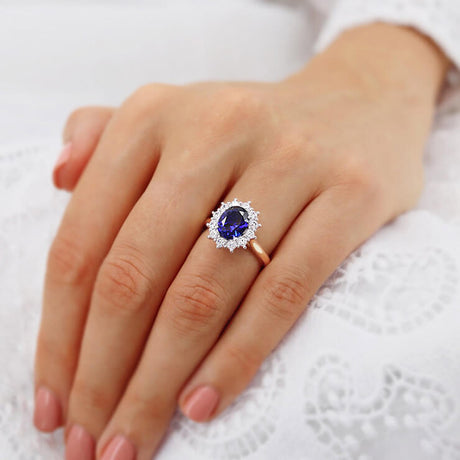
Selling French royal engagement rings carries a complex array of legal implications, entwined with history, ownership, and the intrinsic value of such unique artifacts. An engagement ring is not merely a piece of jewelry; it often carries deep personal significance and, in the case of royal rings, a rich historical legacy. The sale of these royal heirlooms raises questions not only about provenance but also about the rights of ownership, authenticity, and the moral responsibilities of sellers.
Historical Context and Ownership
French royal engagement rings are emblematic of a bygone era, often associated with powerful figures in French history. For instance, rings once owned by queens and princesses often serve as reminders of royal engagements and marriages. Ownership of these items can be legally complicated. When a royal engagement ring is inherited, the current owner must establish clear provenance, tracing the item back to its original owner. Failure to provide this history can lead to legal disputes over rightful ownership.
In some cases, engagement rings have been passed down through generations, and disputes can arise among family members or descendants over rightful ownership. Additionally, if a royal engagement ring was sold or gifted during tumultuous times—such as the French Revolution—determining ownership can become a convoluted legal challenge, often requiring expert testimony and historical documentation to resolve.
Authenticity and Provenance
Authenticity is another critical legal implication when it comes to selling French royal engagement rings. In the realm of antiques and collectibles, the market is rife with forgeries and misrepresented items. To sell a royal engagement ring, a seller must provide proof of authenticity, often requiring certificates of appraisal from reputable sources. If a seller fails to do this and a buyer later discovers that the ring is not authentic, the seller could face legal ramifications, including lawsuits for fraud.
To further complicate matters, the cultural significance of these rings often adds a layer of complexity to their legal status. Some may argue that these items are national treasures deserving of protection from sale or export. Laws governing the sale of historical artifacts can vary significantly between countries, making it essential for sellers to be aware of the legal landscape surrounding their items.
Consumer Protection Laws
From a consumer protection perspective, selling a royal engagement ring involves adhering to various regulations designed to protect buyers. In many jurisdictions, sellers are required to disclose all relevant information about the item, including its condition, provenance, and any known defects. Failure to do so can lead to claims of misrepresentation, allowing buyers to seek legal recourse.
Furthermore, laws governing online sales have introduced additional legal considerations. Sellers using e-commerce platforms must comply with various regulations, including those related to payment security, consumer rights, and privacy. Any misstep in adhering to these regulations can result in penalties, including fines or the removal of the seller’s listings.
Ethical Considerations
Beyond the legal implications, there are also ethical considerations associated with selling French royal engagement rings. The historical significance of these items may carry a moral obligation for sellers to consider who might be interested in purchasing them. Many believe that such items belong in museums or private collections that appreciate and honor their history. Sellers may face public scrutiny if they sell these items solely for profit, raising questions about the ethical implications of commodifying historical artifacts.
Conclusion
The legal implications of selling French royal engagement rings are multifaceted, encompassing issues of ownership, authenticity, consumer protection, and ethical considerations. As the market for unique jewelry continues to grow, understanding these legal complexities is crucial for anyone considering entering this niche. Whether one is a seller, collector, or enthusiast, navigating the intricate landscape of laws and responsibilities surrounding these iconic pieces requires careful consideration and respect for their rich historical significance.